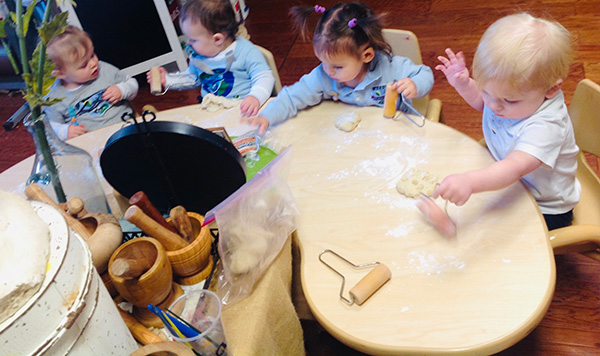Social/Emotional Development:
AEBS provides an opportunity for each infant to develop positive and nurturing relationships with peers, adults, and their environment. Interaction and relationships are one of the most important areas of a child’s early development. All infants need productive and safe relationships. A child cannot learn and grow if he is constantly scared, hungry, thirsty or otherwise stressed. Hugs, kisses, touch and holding as much as possible in the early developmental stages is critical to healthy emotional development. This will deepen the bond between the child and the adult but will also make the child feel safe and content, allowing his/her mind to focus on learning and growing in other areas.
Physical Development:
AEBS provides an environment that fosters growth in gross and fine motor development at developmentally appropriate levels for each infant.
Intellectual Development:
AEBS provides an environment that fosters growth in language, critical thinking, exploration, concentration and sensorial skills at developmentally appropriate levels for each infant.
Language Development:
AEBS provides an opportunity for each infant to develop expressive and receptive language with other infants and caregivers.
Neurological Development
The first three years of life are a period of incredible growth in all areas of a baby’s development. A newborn’s brain is about 25 percent of its approximate adult weight. But by age 3, it has grown dramatically by producing billions of cells and hundreds of trillions of connections, or synapses, between these cells. While we know that the development of a young child’s brain takes years to complete, we also know there are many things parents and caregivers can do to help children get off to a good start and establish healthy patterns for life-long learning. Austin Eco Bilingual School has created an early stimulation program that dedicates individual time to each baby. Babies are exercised in all sensory areas which helps build neuronal connections.




